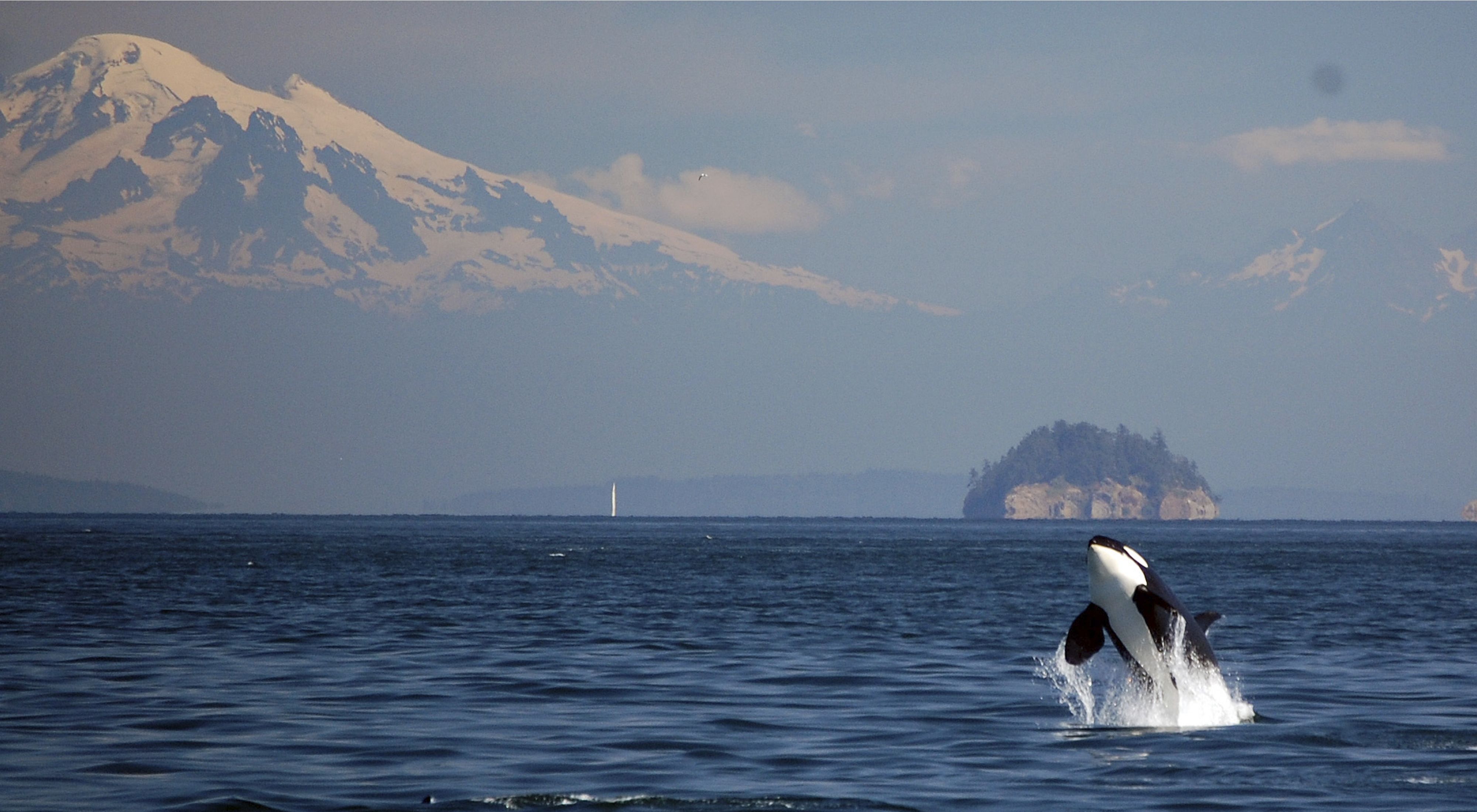How Rain Gardens Help Seattle & Puget Sound
Rain gardens are a natural solution to clean the Sound’s water for salmon, orcas and all who depend on clean water (like us!).
By Chris Hilton, Urban Partnership Director for The Nature Conservancy in Washington
Seattle is famous for lots of things. The music scene. Coffee. The Space Needle. And of course, rain. We want to make Seattle famous for one other thing: rain gardens.
They’re not like vegetable gardens, but rain gardens are productive in other ways. A rain garden is a bowl-shaped garden specially designed to catch water runoff from roofs and pavement, slow it down and filter it, keeping it from becoming water pollution. They’re a low-cost, low-tech way of helping cities like Seattle treat pollution running off of parking lots, rooftops and roads.
Many cities, including Seattle, already have rain gardens. But over the coming years, Seattle and nearby cities and towns may have many more, all helping to keep Puget Sound clean. The Nature Conservancy and organizations like Stewardship Partners and Washington Environmental Council are advancing rain gardens as a key way to not only improve the Sound’s water quality, but to spruce up the city with some much-needed green space.
As director of The Nature Conservancy’s Urban Partnerships for Puget Sound Program, I get so excited about the prospects of improving the Sound – and its salmon, orcas and more – that I’ve got a list of ways that rain gardens help.
- Rain gardens are a natural solution to pollution. They vary in size and shape, but their function is basically the same: The combination of soil, roots and vegetation help filter rain water from parking lots, rooftops and roads. After going through the rain garden, the filtered water goes back into the native soil.
- Rainwater runoff is a HUGE polluter. If not filtered through a rain garden, urban rainwater continues running off on hard, impervious surfaces until it reaches Puget Sound, pollutants and all. In fact, runoff is the single-largest source of pollution for Puget Sound. Some 14 million pounds of pollutants are washed into the Sound every year from the basin’s 14 counties.
- Clean water for healthy fish and wildlife. Puget Sound’s iconic salmon, orcas, birds and many other fish and wildlife species rely on clean, healthy water to survive. They can’t live without it. Research has compared the health of coho salmon in untreated runoff water with salmon in runoff water treated with nature-based solutions like rain gardens. Guess what? Salmon died in the untreated water and thrived in the treated water.
- Rain gardens for healthy people and communities. Rain gardens, urban trees and plants, greenways and other natural infrastructure can bring important additional benefits, like improved physical and mental health. Cities that work with nature are better places to live. Studies have consistently shown that quality of life factors, including scenic beauty, gathering places and trails and parks, are among the most important attributes of preferred places to live and work.
- YOU can be part of the solution. Cleaning up Puget Sound’s 14 million pounds of runoff every year, won’t be easy. It’ll take a lot of rain gardens, green rooftops and other nature-based solutions. It will take the individual and collective participation of many businesses, individuals, agencies and organizations. But it can be done. The Nature Conservancy has pledged to work with partners over the next five years to clean up a billion gallons of stormwater before it reaches Puget Sound. We will plant a million trees to hold and filter water, while storing carbon and enhancing our cities. We’ll start 20,000 new rain gardens, demonstrating the value of natural solutions in tackling a big problem.
Learn more about becoming an advocate for nature’s solutions for stormwater at washingtonnature.org/urbanwater.
Chris Hilton is the Urban Partnership Director for the Puget Sound urban conservation program in Washington state. As a conservationist who loves living in a city, she is passionate about advancing conservation in urban areas. Chris is working with dozens of stakeholders across the education, non-profits, government and business sectors to bring nature to Puget Sound’s cities and towns.
A version of this post also ran on Treehugger.com.
